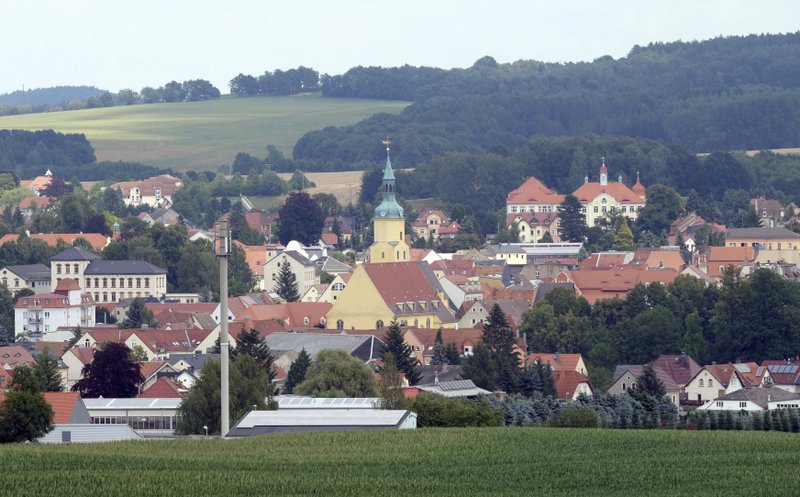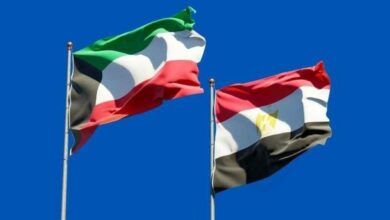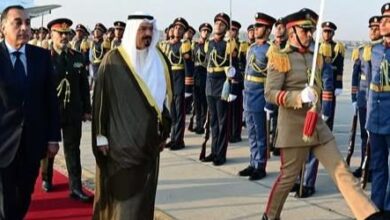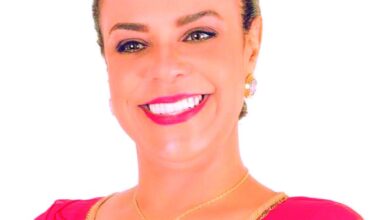
The Trump administration on Friday ramped up diplomatic efforts to help resolve Qatar’s crisis with its Arab neighbors, which risks implications for America’s military presence in the Middle East and the fight against the Islamic State group. The US is also concerned that the spat among Arab governments could hamper a shared interest in blunting Iranian assertiveness in the region.
President Donald Trump spoke with Qatar’s leader to affirm the importance of ending the festering, three-month-old dispute between Qatar and Saudi Arabia, the United Arab Emirates, Bahrain and Egypt, the White House said Friday.
Later Friday, the White House said Trump had spoken separately with the leaders of Saudi Arabia and the UAE.
Trump’s call to Qatar’s Sheikh Tamim bin Hamad Al Thani on Thursday came after he met the emir of Kuwait, whom he thanked for his vigorous yet thus far unsuccessful mediation. Trump reasserted his demand for all countries to stop funding extremist groups. He previously has described how Arab leaders criticized Qatar for such terror financing during a regional summit in Saudi Arabia earlier this year.
Trump “underscored the importance of all countries following through on commitments from the Riyadh Summit to maintain unity while defeating terrorism, cutting off funding for terrorist groups and combatting extremist ideology,” the White House said in a statement. The leaders “also discussed the continued threat Iran poses to regional stability.”
The row has split key US counter terrorism partners and undermined the cohesion of the Gulf Cooperation Council, a traditional bulwark of US-led efforts to contain Iran’s influence.
The White House released its readout of the call after Qatar’s ambassador to the US said the country would donate $30 million to help Texans recover from Harvey.
On Friday, talks about Qatar continued as Secretary of State Rex Tillerson met senior Kuwaiti officials at the State Department to discuss regional security and Emir Sheikh Sabah Al Ahmad Al Sabah’s mediation bid.
“We support his efforts to help bring about a settlement,” Tillerson said of the Kuwaiti leader. “The United States and Kuwait both recognize the important of GCC unity to meet the challenges of the region that we all face together, not the least of which is the threats from Iran.”
Trump, too, on Thursday offered support. He applauded Kuwait’s “critical contributions to regional stability” and repeated an offer to mediate himself, particularly between Qatar and Saudi Arabia and the UAE. Trump suggested a deal would be “worked out very quickly” if he became personally involved.
But Trump has sent conflicting signals about where he stands on the dispute. He initially appeared to side with Saudi Arabia. Then, he instructed Tillerson to support Kuwait’s mediation, shuttling between the parties in July. As the dispute has dragged on, the administration has dispatched other US envoys to bolster the 88-year-old Kuwaiti emir’s initiative.
At a joint news conference with Trump on Thursday, Sheikh Sabah said he remained hopeful a resolution could be reached. He noted Qatar had been presented with a list of 13 demands by the other countries and was willing to discuss them. Although Qatar has rejected some of them out of hand, Sheikh Sabah said negotiations were possible.
But underscoring the impasse, the quartet of Arab nations boycotting Doha issued a strongly worded statement early Friday morning dismissing some of the emir’s comments. “Any dialogue on meeting their demands should not be preceded by any prior conditions,” they said in a statement that was an unusual, personal rebuke in the clubby world of Gulf Arab states.
The crisis erupted June 5 when Bahrain, Egypt, Saudi Arabia and the United Arab Emirates cut ties to Qatar over allegations it funds extremists and is too cozy with Iran. Qatar hosts a US military base critical to the anti-IS fight in Iraq and Syria. It denies funding extremists. It recently restored full diplomatic ties to Iran, with which it shares a massive offshore natural gas field that makes its citizens among the world’s wealthiest.




